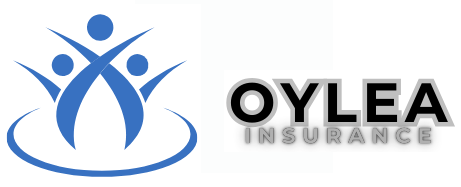
Are you overlooking a crucial connection that could significantly impact your financial well-being? The finance-insurance connection you’re ignoring (that could save you thousands) is a powerful tool often underestimated. Understanding how these two areas intertwine can lead to substantial savings and greater financial security. Let’s explore this often-missed opportunity.
Why is Insurance Often Overlooked in Financial Planning?
Many people approach finance and insurance as separate entities. They meticulously budget, invest, and plan for retirement, yet often neglect the crucial role insurance plays in protecting their hard-earned assets and future plans. This oversight can lead to devastating financial consequences in unforeseen circumstances. Ignoring the potential impact of unexpected events like illness, accidents, or property damage can leave you vulnerable to significant financial losses.
The Unexpected Costs of Ignoring Insurance
Consider the potential costs of a major health issue without adequate health insurance. The medical bills alone could easily wipe out years of savings. Similarly, a house fire or a serious car accident could leave you facing immense repair or replacement costs, potentially leading to crippling debt. This is where the finance-insurance connection you’re ignoring (that could save you thousands) becomes undeniably important.
How Insurance Protects Your Financial Future
Insurance acts as a safety net, mitigating the financial risks associated with life’s unpredictable events. By strategically planning your insurance coverage, you’re protecting your investments, your assets, and your future financial stability. This is a critical component of comprehensive financial planning that many overlook. It’s not just about paying premiums; it’s about creating a robust financial shield.
Different Types of Insurance and Their Financial Impact
Different types of insurance cater to various financial needs. Life insurance protects your loved ones financially in your absence, ensuring their financial security. Home insurance safeguards your property from damage or loss. Auto insurance protects you from the financial burden of accidents. Understanding the different types of insurance and choosing the right coverage is crucial for building a strong financial foundation. [https://oylea.xyz/insurance-types-guide] offers a more in-depth look at the various options available.
Strategies for Maximizing the Finance-Insurance Connection
To truly leverage the finance-insurance connection you’re ignoring (that could save you thousands), consider these strategies:
Regular Review and Adjustment of Your Policies
Your insurance needs evolve over time. Regularly reviewing and adjusting your policies ensures that you have the appropriate coverage for your current circumstances. This proactive approach prevents gaps in coverage that could leave you vulnerable to significant financial losses. [https://oylea.xyz/financial-planning-checklist] can help you create a personalized checklist for regular review.
Seeking Professional Financial Advice
A qualified financial advisor can help you integrate insurance into your overall financial plan. They can assess your risk tolerance, financial goals, and current coverage to recommend the most suitable insurance options for your specific needs. Their expertise can help you make informed decisions that protect your financial future.
In conclusion, understanding and utilizing the often-overlooked connection between finance and insurance is paramount to securing your financial future. By proactively managing your insurance coverage and integrating it into your financial planning, you can significantly reduce your financial vulnerability and potentially save thousands in the long run. Remember, a well-structured insurance plan is not an expense, but a vital investment in your financial well-being. [https://oylea.xyz/insurance-planning-guide] offers further insights into effective insurance strategies.
